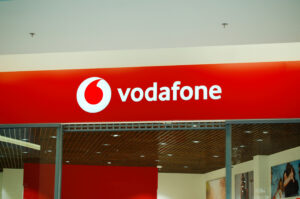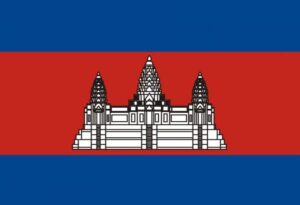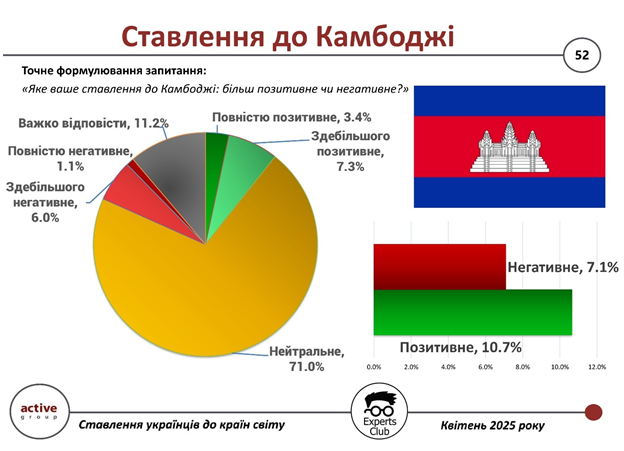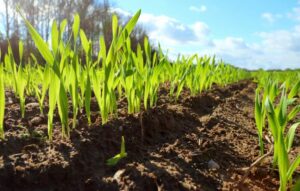
Ukraine’s second-largest mobile operator, Vodafone Ukraine (VFU), increased its revenue by 14% in January-March 2025 compared to the same period in 2024, to UAH 6.59 billion, while reducing its net profit by 24% to UAH 697 million.
The 24% decline in net profit compared to the same period last year was due to the restructuring of Eurobonds, increased investments, and higher tax payments, according to a statement posted on VF Ukraine’s official website on Friday.
The main drivers of the company’s revenue growth were increased data usage, growth in the number of Internet users and, as a result, growth in revenues from both mobile and fixed communications. This also contributed to a 5% increase in OIBDA to UAH 3.34 billion, the report said.
ARPU (average revenue per user) in the first quarter of 2025 increased by 15% compared to the first quarter of last year to UAH 128.1/month. At the same time, the subscriber base in the reporting period decreased slightly by 0.6% to 15.7 million users.
The OIBDA margin remained high at 50.7%. It decreased by 4.6 percentage points compared to the first quarter of 2024, mainly due to higher electricity costs, increased expenses for ensuring the energy stability of the network, and higher fees for the use of radio frequency resources.
Vodafone Ukraine almost doubled its infrastructure investments in January-March 2025, which grew by 95% compared to the same period in 2024, to UAH 1.59 billion.
Energy independence is among the priority areas in which the company has invested. In the first three months of 2025, Vodafone Ukraine significantly improved the energy resilience of its network, in particular by increasing the number of mobile communication points capable of operating during prolonged power outages by 1.5 times, according to the report.
The company invested in expanding coverage and increasing network capacity, as well as in preparations for next-generation technologies. Vodafone Ukraine launched 1,171 new network standards to improve coverage and connection quality. The operator also began connecting mobile base stations using passive xPON optical networks, which will enable a smoother transition to next-generation mobile technologies—5G and, in the future, possibly 6G.
During the first quarter, work continued on the development and modernization of fixed-line networks. Vodafone Ukraine began upgrading the telecommunications infrastructure of fixed-line operator Frinet and continued to expand fixed broadband networks using modern GPON technology.
In January-March, Vodafone Ukraine’s Home Internet service, which remains operational even during power outages, was launched in another 124,000 households. The company’s total fixed-line coverage across all technologies now exceeds 1.9 million households. The company is actively expanding its presence in new regions – in Kyiv, Odesa, Dnipro, Kharkiv, Lviv, Zaporizhia, Mykolaiv, Ivano-Frankivsk, Poltava, Chernihiv, Zhytomyr, Lutsk, Rivne, and Ternopil, according to the report.
Vodafone Ukraine has also launched its first 3-in-1 tariff line, GigaCombo, which combines mobile communications, fixed Internet, and television in a single tariff package.
In total, since the start of the full-scale war, Vodafone Ukraine has invested over UAH 17 billion in the development of telecommunications infrastructure in Ukraine.
In February 2025, Vodafone Ukraine successfully completed the restructuring of its Eurobonds, repurchasing bonds worth almost $100 million. The remaining liabilities now amount to $300 million, according to the company’s statement.

The Ukrainian brand Smakuli (Lviv) — gluten-free cookies and snacks — is now available in German Rewe supermarkets, according to the Amal Berlin portal.
“We initially built our portfolio in Ukraine and have already implemented international quality and safety standards FSSC 22000, as well as AOECS certification, which certifies that allergens are carefully controlled in production. But that wasn’t enough – the process of entering the German market took almost 11 months,” the publication quotes Ruslana Rymarska, founder of the Smakuli brand and head of the Ukrainian Food Manufacturers Alliance (UFMA).
The Ukrainian company gained the opportunity to be represented in the Rewe network as part of the Startup Lounge project, which offers small businesses and startups the opportunity to introduce their products to the network.
According to Rymarska, work is currently underway to enter the Dutch and Swedish markets.

A survey conducted by Active Group in collaboration with the Experts Club think tank showed that most Ukrainians have a neutral attitude toward Laos — 70.7% of respondents chose this option.

A positive attitude was expressed by 10.1% of respondents, of whom 6.5% answered “mostly positive” and another 3.6% “completely positive.” At the same time, 7.5% of respondents expressed a negative opinion — of these, 6.0% chose “mostly negative” and 1.5% “completely negative.” The option “difficult to answer” was chosen by 11.8% of respondents.
According to Pozniy, these results can be explained by the low level of information about Laos in the Ukrainian media.
“For most Ukrainians, Laos is an exotic, little-known country, so a neutral attitude prevails. But against the backdrop of general neutrality, sympathy can also be seen — more than 10% of positive responses,” said Oleksandr Pozniy, co-founder of Active Group.
More than two-thirds of Ukrainians have a neutral attitude toward Laos, which indicates a limited understanding of the country. The positive share corresponds to the average level for lesser-known Asian countries, and the high percentage of those who are undecided indicates potential for cultural rapprochement and information education.
The presentation of the study is available at the link.
ACTIVE GROUP, DIPLOMACY, EXPERTS CLUB, Pozniy, SOCIOLOGY, URAKIN

According to the results of a sociological survey conducted by Active Group and the Experts Club analytical center, Ukrainians’ attitude towards Cambodia is mostly neutral — 71% of respondents chose this option.

A total of 10.7% of respondents have a positive attitude toward Cambodia: 7.3% of them are mostly positive, and 3.4% are completely positive. On the other hand, 7.1% of Ukrainians have a negative attitude, including 6% who are mostly negative and 1.1% who are completely negative. Another 11.2% were unable to determine their attitude.
“Such a high percentage of neutrality indicates that there is no stable image of Cambodia in the mass consciousness of Ukrainians. It is a country that is rarely mentioned in the context of political or economic news, so the emotional background regarding it is minimal,” explains Maksim Urakin, candidate of economic sciences and founder of the Experts Club information and analytical center.
Ukrainians generally do not have a clear idea about Cambodia, which leads to a high level of neutrality. Positive perceptions exist but are not dominant, which opens up opportunities for the development of cultural diplomacy, intergovernmental contacts, and tourism.
The presentation of the study is available at the link.
ACTIVE GROUP, DIPLOMACY, EXPERTS CLUB, Pozniy, SOCIOLOGY, URAKIN

The results of a sociological survey conducted by Active Group in collaboration with Experts Club show that most Ukrainians do not have a formed opinion about Peru.
Thus, 70.3% of respondents chose a neutral position, while another 9.0% were unable to answer. Such a high level of neutrality indicates limited knowledge about the country among the general public.
At the same time, 15.5% of Ukrainians demonstrated a positive attitude (of which 12.1% were mostly positive and 3.4% were completely positive). A negative attitude was expressed by 5.2% (mostly moderately negative).

“Peru is associated with exoticism, Inca heritage, and Machu Picchu, but it is not an active player in the Ukrainian information space. Because of this, it arouses curiosity but not strong emotions,” notes Maksim Urakin, candidate of economic sciences and founder of the Experts Club information and analytical center.
Most Ukrainians have a neutral attitude toward Peru, but the proportion of those who like it exceeds the proportion of those who are critical. This creates a basis for potential improvement in intergovernmental contacts in the future.
The presentation of the study is available at the link.
ACTIVE GROUP, DIPLOMACY, EXPERTS CLUB, Pozniy, SOCIOLOGY, URAKIN

As of May 9, Ukraine has sown 4.32 million hectares with spring grain and leguminous crops, which is in line with last year’s figure and accounts for 76% of the plan, the Ministry of Agrarian Policy and Food reported on Friday.
According to its data, 1.07 million hectares were sown during the week, reducing the gap with last year’s sowing schedule by 6.1%.
As noted by the Ministry of Agrarian Policy, 2.9 million hectares have already been sown with corn (1.92 million hectares a week earlier), 733,400 hectares with barley (715,200 hectares), 212,600 hectares with spring wheat (207,900 hectares), 208,900 hectares with peas (205,700 hectares), and 157,000 hectares with oats (157,000 hectares). ha (207.9 thousand ha), peas – 208.9 thousand ha (205.7 thousand ha), oats – 157 thousand ha (157 thousand ha), buckwheat – 16.3 thousand ha (7 thousand ha), millet – 15.7 thousand ha (6 thousand ha).
According to the plan, corn sowing reached 73%, barley – 94%, spring wheat – 93%, peas – 96%, oats – 97%, buckwheat – 18%, millet – 20%.
Last year, as of May 10, corn was sown on 2.84 million hectares, barley – 779,900 hectares, spring wheat – 244,900 hectares, peas – 161,600 hectares, oats – 165,000 hectares, buckwheat – 14,800 hectares, millet – 28,500 hectares.
According to information from the Ministry of Agrarian Policy, the Poltava region leads in terms of sowing rates with 509,700 hectares, followed by the Kirovograd region with 352,000 hectares, the Chernihiv region with 349,700 hectares, the Cherkasy region with 339,800 hectares, and the Sumy region with 294,300 hectares.
Technical crops were sown on an area of 5.2 million hectares, compared with 3.432 million hectares a week earlier and 5.42 million hectares last year on the same date.
In particular, sunflower crops reached 3.5 million hectares (2.36 million hectares a week earlier and 3.96 million hectares last year), soybeans – 1.3 million hectares (0.73 million hectares and 1.20 million hectares), and sugar beet – 1.2 million hectares (0.73 million hectares and 1.20 million hectares). ha (2.36 million ha a week ago and 3.96 million ha last year), soybeans – 1.3 million ha (0.73 million ha and 1.20 million ha) and sugar beets – 0.22 million ha (0.22 million ha and 0.25 million ha).
The Ministry of Agrarian Policy notes that sunflower crops currently account for 69% of the plan, soybeans – 55.9%, and sugar beets – 99%.